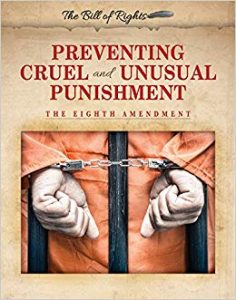 The 8th Amendment to the the US Constitution is another important provision for those facing criminal charges. It states, “Excessive bail shall not be required, nor excessive fines imposed, nor cruel and unusual punishments inflicted.” It serves as a safeguard that the “punishment should fit the crime” and that incarceration before adjudication of guilt or innocence should be reasonable.
The 8th Amendment to the the US Constitution is another important provision for those facing criminal charges. It states, “Excessive bail shall not be required, nor excessive fines imposed, nor cruel and unusual punishments inflicted.” It serves as a safeguard that the “punishment should fit the crime” and that incarceration before adjudication of guilt or innocence should be reasonable.
Because it is a requirement embedded in the Constitution, bail has become a business enterprise in the United States. As with all businesses, some are better than others. I wrote a post a few years ago on the subject, you can read it here.
This is an amendment that garners quite a bit of attention because of its openness to interpretation. It’s a subjective standard that determines what constitutes “excessive bail” and it’s even more subjective when it comes to determining what is cruel and unusual punishment.
This subjectivity has also been called vagueness which was recognized from the outset concerning this amendment.
One clue to the expectations of the framers comes from the debates of the First Congress that proposed the Eighth Amendment. On the floor of the House, Representative Livermore complained about the vagueness of the amendment’s language: “It is sometimes necessary to hang a man, villains often deserve a whipping, and perhaps having their ears cut off, but are we in the future to be prevented from inflicting those punishments because they are ‘cruel’?” Despite Livermore’s objections, the vague language, subject to new interpretation over time, was left unchanged and the amendment ratified. The Supreme Court in the 1958 case of Trop v Dulles, expressly endorsed the view that what are prohibited “cruel and unusual punishments” should change over time, being those punishments which offend society’s “evolving sense of decency.”
The amendments, particularly those having to do with criminal proceedings, are meant to safeguard a person’s right to justice and liberty. While some of them may be controversial, they serve as important guarantors of our way of life.
